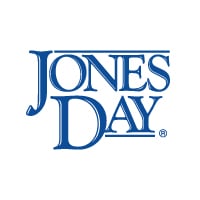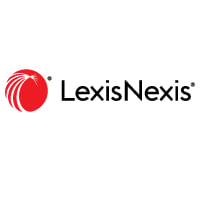

Group General Counsel and Senior Vice President | DFS Group






Ryan Mark
Group General Counsel and Senior Vice President | DFS Group
Biography
Ryan Mark is a seasoned legal expert with a robust career spanning nearly two decades, marked by significant achievements and contributions to the legal and corporate sectors. Currently positioned as the Group General Counsel and Senior Vice President of the Legal Compliance & Risk Department at DFS Group Limited in Hong Kong, Ryan has established himself as a pivotal member of the company’s Senior Leadership Team. His role involves steering a diverse team across Hong Kong, Macau, Mainland China, Vietnam, Italy, and Abu Dhabi, focusing on board management, corporate compliance, and strategic projects.
Ryan’s legal journey began in 2008, following his academic pursuits in law and political science. He holds a Bachelor of Arts in Political Science from the University of British Columbia, a first-class LLB from the City University of Hong Kong, and an LLM in Corporate and Commercial Law from the London School of Economics.
His professional endeavors commenced at DLA Piper Hong Kong, where he served as a Trainee Solicitor, gaining invaluable experience in shipping and cargo-related litigation. His involvement in high-stakes legal proceedings in the United States and Hong Kong laid a solid foundation for his future roles. Subsequently, Ryan joined Eversheds LLP as an Associate in the Litigation Group, where he advised prominent clients such as container terminals and logistics service providers on contentious and non-contentious matters. His expertise extended to defending major corporations in product liability disputes and assisting in complex arbitration proceedings.
In 2014, Ryan transitioned to Li & Fung (Trading) Ltd as a Legal Counsel, where he played a crucial role in advising the company on logistics services offerings and major buyer agency agreements. His strategic acumen was further demonstrated during his tenure as General Manager of Contract and Risk Management at LF Logistics Management Ltd, a subsidiary of Li & Fung. Ryan was instrumental in drafting and negotiating large-scale contracts, managing insurance procurement processes, and overseeing legal disputes globally.
Since joining DFS Group Limited in 2018, Ryan has been at the forefront of numerous strategic initiatives and disputes. He has successfully negotiated real estate redevelopment projects in key global markets, including Hong Kong, Macau, Australia, New Zealand, and the United States which underscores his comprehensive understanding of international legal landscapes and corporate governance.
How do you approach managing legal aspects during periods of instability or crises, and how does your legal strategy align with the broader business strategy to ensure organisational resilience?
During periods of instability or crises, strong leadership and a clear tone from the top are essential. Mirroring the approach of DFS leadership, our department’s leadership team—encompassing the legal, compliance, data protection, and risk management functions—convenes regularly to strategically optimise teamwork during both stable and turbulent times. We proactively seek opportunities to streamline routine tasks, creating an operational “rainy-day buffer” to effectively address unforeseen challenges. While thorough deliberation guides our decision-making process, once a course of action is determined, we execute with precision, organisation, and speed.
Our legal strategy is thoroughly aligned with the broader business strategy to ensure organisational resilience. This close collaboration enables our department to maintain a steady “auto-pilot” mode on Business As Usual (BAU) matters, thanks to strong, established stakeholder relationships. At the start of each year, we conduct dedicated stakeholder meetings to outline the upcoming year’s objectives and priorities. This proactive approach allows us to anticipate potential legal issues and develop strategies to address them effectively. When instability or crises arise, this pre-existing alignment serves as a crucial anchor, enabling us to maintain momentum on our day-to-day work while concurrently managing the crises at hand.
How do you see AI and automation reshaping the legal profession, and how are you leveraging technology in your own legal team?
Over the past three years, our department has prioritised the adoption of technology and automation solutions to enhance service delivery and gain a more strategic understanding of our legal position across various areas, including our contract portfolio. Despite operating with a very lean budget, we have successfully identified and implemented effective solutions within the Microsoft environment to streamline our daily operations. With the assistance of an external vendor, we developed a contract management system utilising various MS applications, enabling us to: (1) automate contract review requests, (2) efficiently process approvals and contract signatures, and (3) automate contract storage. This system also offers comprehensive reporting functionalities, providing valuable metrics that enable us to optimise resource allocation. Furthermore, our team has fully integrated MS Planner to facilitate seamless work tracking and project management. In addition to these tools, we have access to—and actively encourage the use of—in-house AI-enabled tools that assist with routine matters such as drafting simple letters and contracts.
What is one leadership principle or practice that has had the greatest impact on your career as a GC?
One leadership principle that has had the greatest impact on my career as a General Counsel is leading by example, particularly in fostering a commercially minded approach within the legal team. By consistently demonstrating a focus on how legal strategies can support and advance business objectives, I aim to cultivate a team that is not only legally sound but also commercially astute. This involves actively participating in business discussions, understanding the company’s strategic goals, and proactively identifying legal solutions that align with those goals. Leading by example also means empowering the team to think critically about the commercial implications of their advice and to communicate legal considerations in a clear and business-friendly manner. By embodying this commercially focused approach, I believe we can elevate the department from a purely reactive function to a strategic partner that contributes directly to the organisation’s success.